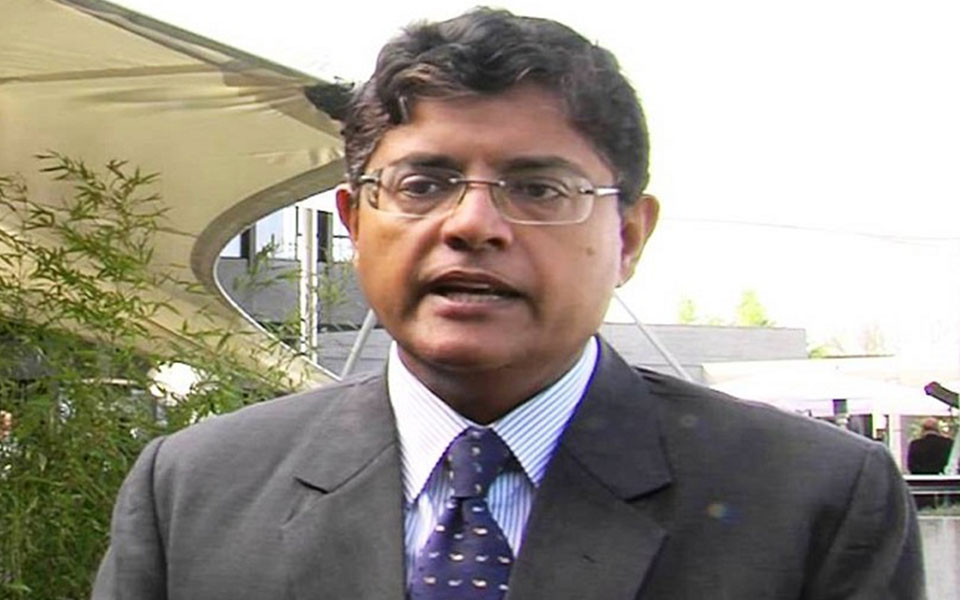Bhubaneswar, May 28: Baijayant Jay Panda, who was suspended from primary membership of the Biju Janata Dal (BJD) in January, quit the party on Monday.
"It's with deep anguish, hurt and sorrow that I have decided to quit the politics into which our BJD has descended," said Panda in a letter to Odisha Chief Minister and BJD president Naveen Patnaik, adding that he would convey his decision to the Lok Sabha Speaker.
"With the BJD and you yourself having made it abundantly clear that I am unwanted, it is only right to disassociate from it," he said in the letter.
The Kendrapada MP said: "It has plumbed the absolute depths of inhumanity when neither you nor anyone from the BJD turned up to pay their last respects to my father Bansidhar Panda, who as everyone knows was a very close friend, supporter and associate of Biju uncle (Biju Patnaik) for decades."
Senior Panda, a noted Odia industrialist, passed away on May 22 at the age of 87.
Panda said that he was heartbroken when several BJD leaders conveyed that they had been restrained from coming by to pay their last respects to the departed soul.
He also said he will convey his decision to Lok Sabha Speaker Sumitra Mahajan to accept his resignation upon completion of his religious obligations of bereavement.
"I've been viciously targeted, including being physically assaulted with stones, bricks and eggs last May in Mahanga. I was extremely saddened that even then you (Naveen Patnaik) did not bother to call to inquire about my health and safety," said Baijayant.
Patnaik had suspended Panda from the party for his anti-party activities on January 24.
He was elected to the Lok Sabha in 2009 and 2014 from Kendrapara Lok Sabha constituency. Earlier, he was elected to Rajya Sabha twice on BJD ticket.
Let the Truth be known. If you read VB and like VB, please be a VB Supporter and Help us deliver the Truth to one and all.
Bengaluru (PTI): Karnataka has proposed a new Information Technology Policy for 2025–2030, offering extensive financial and non-financial incentives aimed at accelerating investments, strengthening innovation and expanding the state's tech footprint beyond Bengaluru.
The Karnataka Cabinet gave its nod to the policy 2025–2030 with an outlay of Rs 445.50 crore on Thursday after the Finance Department accorded its approval.
The policy introduces 16 incentives across five enabler categories, nine of which are entirely new, with a distinctive push to support companies setting up or expanding in emerging cities.
Alongside financial support, the government is also offering labour-law relaxations, round-the-clock operational permissions and industry-ready human capital programmes to make Karnataka a globally competitive 'AI-native' destination.
According to the policy, units located outside Bengaluru will gain access to a wide suite of benefits, including research and development and IP creation incentives, internship reimbursements, talent relocation support and recruitment assistance.
The benefits also include EPF reimbursement, faculty development support, rental assistance, certification subsidies, electricity tariff rebates, property tax reimbursement, telecom infrastructure support, and assistance for events and conferences.
Bengaluru Urban will receive a focused set of six research and development and talent-oriented incentives, while Indian Global Capability Centres (GCCs) operating in the state will be brought under the incentive net.
Incentive caps and eligibility thresholds have been raised, and the policy prioritises growth-focused investments for both new and expanding units.
Beyond incentives, the government focuses on infrastructure and innovation interventions.
A flagship proposal in the policy is the creation of Techniverse -- integrated, technology-enabled enclaves developed through a public-private partnership model inside future Global Innovation Districts.
These campuses will offer plug-and-play facilities, artificial intelligence and machine learning and cybersecurity labs, advanced testbeds, experience centres, and disaster-resistant command centres.
There will also be a Statewide Digital Hub Grid and a Global Test Bed Infrastructure Network, linking public and private research and development, and innovation facilities across Karnataka.
The government has proposed a Women Global Tech Missions Fellowship for 1,000 mid-career women technologists, an IT Talent Return Programme to absorb experienced professionals returning from abroad, and broad-based skill and faculty development reimbursements.
Shared corporate transport routes in Bengaluru and tier-two cities will be designed with Bengaluru Metropolitan Transport Corporation and other transport entities to support worker mobility.
The government said the policy is the outcome of an extensive research and consultation process involving TCS, Infosys, Wipro, IBM, HCL, Tech Mahindra, Cognizant, HP, Google, Accenture and NASSCOM, along with sector experts and stakeholder groups.
It estimates an outlay of Rs 967.12 crore over five years, comprising Rs 754.62 crore for incentives and Rs 212.50 crore for interventions such as Techniverse campuses, digital grid development, global outreach missions and talent programmes.





